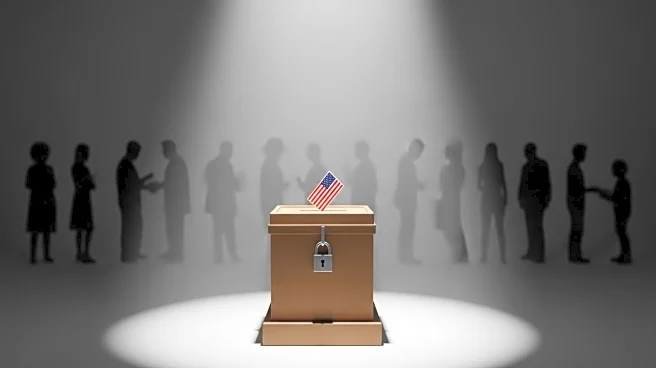What's Happening?
Stacey Abrams, a prominent voting rights activist, has raised concerns about voter suppression and its impact on democracy in the United States. Abrams emphasizes the critical nature of protecting voting rights in upcoming election cycles, suggesting that the future of democracy may hinge on these efforts. She warns of the potential shift from democracy to autocracy if voter suppression is not adequately addressed. Abrams has been vocal about the importance of monitoring and countering efforts that undermine democratic processes, advocating for vigilance and proactive measures to safeguard electoral integrity.
Why It's Important?
The issue of voter suppression is significant as it directly affects the democratic process in the United States. Ensuring fair and accessible voting is crucial for maintaining the legitimacy of elections and the representation of citizens' voices. If voter suppression continues unchecked, it could lead to diminished public trust in electoral outcomes and potentially shift the political landscape towards autocratic governance. This has implications for political stability, civil rights, and the overall health of democracy in the country. Stakeholders, including policymakers, civil rights organizations, and voters, must engage in efforts to protect voting rights to prevent erosion of democratic principles.
What's Next?
Efforts to combat voter suppression are likely to intensify as the next election cycle approaches. Advocacy groups and political leaders may push for legislative reforms to enhance voting accessibility and security. Public awareness campaigns could be launched to educate voters about their rights and the importance of participation in elections. Additionally, legal challenges against restrictive voting laws may arise, aiming to overturn measures that disenfranchise voters. The outcome of these efforts will be crucial in determining the direction of U.S. democracy and the protection of electoral integrity.
Beyond the Headlines
The broader implications of voter suppression extend beyond immediate electoral outcomes. It raises ethical questions about equality and justice in the political system, highlighting disparities in access to voting among different demographic groups. Long-term, addressing voter suppression could lead to shifts in political engagement and representation, potentially altering policy priorities and governance structures. The cultural dimension involves fostering a democratic ethos that values inclusivity and participation, reinforcing the foundational principles of the nation.










